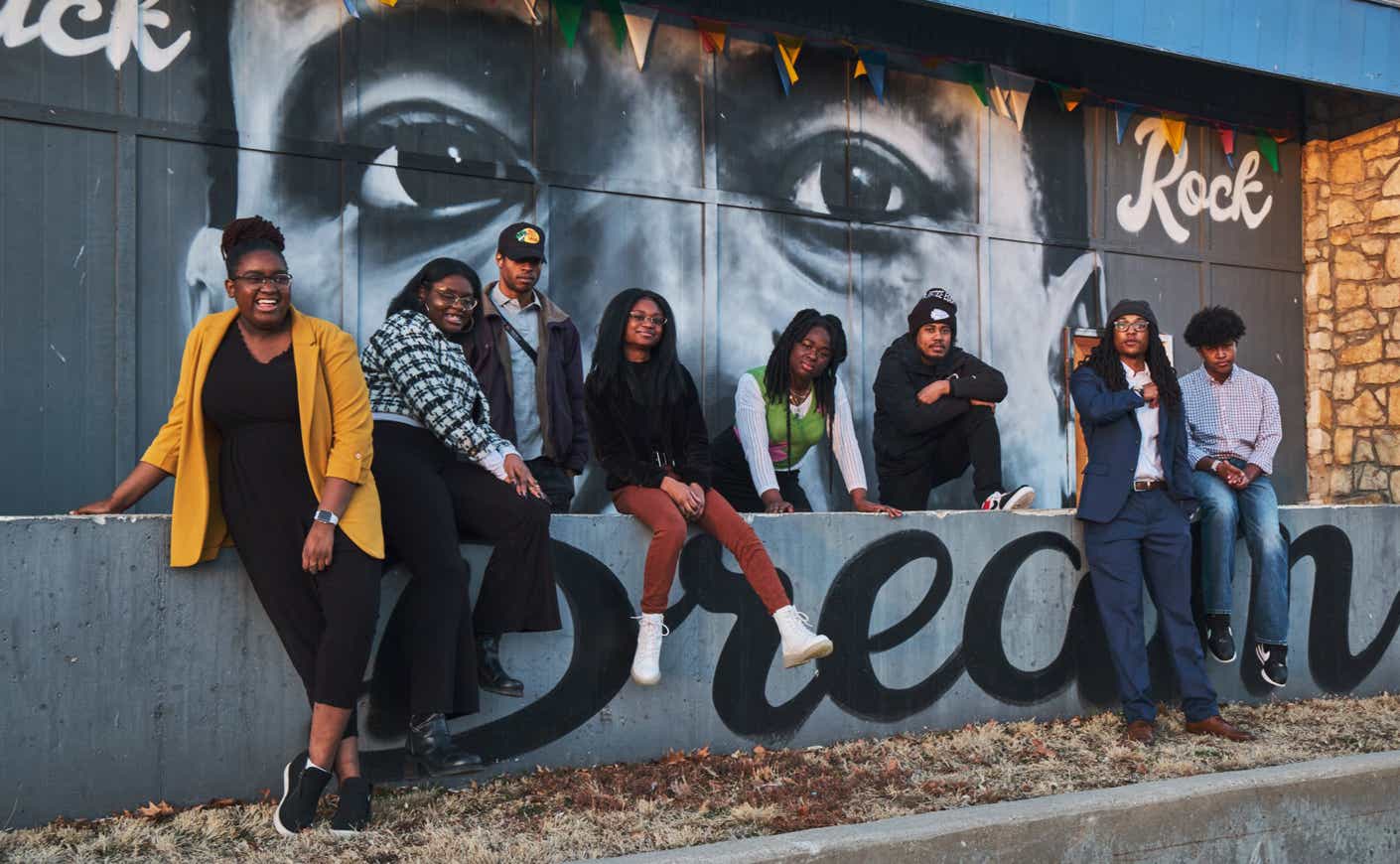When the murder of George Floyd renewed conversations about the history of systemic racism in the U.S. and drove thousands of Americans to protest, Ryan Sorrell was moved to do something different. He quit his corporate job, moved back to Kansas City, and started his own media outlet, The Kansas City Defender. The online publication covers a mix of local news, culture, and politics from a Black perspective and caters specifically to young readers, says Sorrell.
The Kansas City Defender is part of a new wave of media startups fulfilling a vital niche — creating a space where the Black community can speak for themselves about the issues they care about and dismantle harmful stereotypes, says Cheryl-Thompson-Morton, director of the Black Media Initiative (BMI) at the Craig Newmark Graduate School of Journalism.
“Overall, we’re seeing this period of growth and more people moving into the sector and starting their own organizations,” Thompson-Morton tells us. BMI supports these startups and provides research on the role Black media plays in the journalism ecosystem.
The history of Black news media
The craft can be traced back to 1827 with Freedom’s Journal, the first newspaper owned and led by Black Americans. From the outset, the publication made its agenda clear, says Thompson-Morton; its inaugural issue stated: “We wish to plead our own cause. Too long have others spoken for us. Too long has the publick been deceived by misrepresentations, in things which concern us dearly…”
Among the Black newspapers that followed, like the North Star, published by Frederick Douglass, and the work of Ida B. Wells, Thompson-Morton says an ethos emerged: “To speak to the humanity of the people, who for the majority of this country’s history weren’t seen as human.” She says that always been “at the forefront of the work of Black media.”
The goal of Black media startups
Sorrell, 26, sees his publication as part of this tradition. He had no prior journalism experience before starting the outlet, and considers The Kansas City Defender as situated squarely outside of the mainstream media. With a team of high school interns, they’ve previously published pieces on topics like bail reform, censorship in schools, and student-led protests, including one staged at a high school where a white teacher was reported to have used the n-word. And they’ve cultivated a dedicated audience in the region, seeing nearly 2 million visitors to the site within their first four months.
“We’re within the legacy of the Black press, which means that we don’t aim to be objective by any means,” Sorrell tells us. “We see ourselves as advocates.”

How new Black media startups are pushing the bounds of traditional journalism
One major way Sorrell has bucked traditional journalism standards is by rejecting, or at least being highly critical of, the narratives given by law enforcement. Police reports have long been a cornerstone of crime reporting, but in recent years, as they’ve increasingly been revealed to be inaccurate or unreliable in some instances, journalists have begun to reevaluate using the police as a source.
Sorrell pointed to a police shooting in Kansas City two years ago, in which surveillance footage that was later leaked seemed to contradict official police reports. “One of the biggest issues I have is that media outlets will unquestioningly parrot official police narratives. It’s very frequent that those aren’t accurate,” he says. “So I think it’s necessary that the Black media pushes back against those harmful narratives.”
Thompson-Morton says there have a proliferation of outlets like the Defender that are focused on covering their local communities. But there’s been a growth in national outlets too, like Capital B, a nonprofit newsroom based in Atlanta, and Notedd, formed in 2019 by Lauren Strayhorn.
Like Sorrell, Strayhorn didn’t come from a journalism background but started her media company because she sensed there was a gap in the media ecosystem. While doing a graduate program at Georgetown University, she surveyed over 100 Black women and found that they, like her, craved a news outlet that catered more specifically to their interests.
“That level of frustration and invisibility was what sparked this idea,” she tells us.
Strayhorn said she was frustrated at having to each morning read CNN or MSNBC, on top of multicultural outlets like Ebony, and publications like Refinery 29 or the Skimm that focused on millennial women, to feel as if she’d covered all her bases. She also felt there was a lack of coverage celebrating Black women and their accomplishments, and that when there was, often it’d lack nuance. So she created Notedd, a newsletter where these issues intersect.
“We represent a multitude of different backgrounds and experiences and Notedd offers that sort of safe space for our community to feel like they can come and be informed from their perspective,” she says.
How the Black press is serving the next generation
Thompson-Morton says there’s a lot to be excited about within Black media, as new companies emerge and older ones push to reinvent themselves in order to court a younger audience. She points to the Defender as a media outlet that’s really been able to tap into that often elusive demographic. “Overwhelmingly their audience is under 25,” she says. “They’re just doing really interesting and innovative work.” Sorrell says their focus on engaging with Kansas City’s young population, reporting deeply on topics that they care about, and meeting them where they’re at has been key in growing his Gen Z readership. And he says he hopes to continue to push the envelope and “demonstrate what the future of media can look like.”









